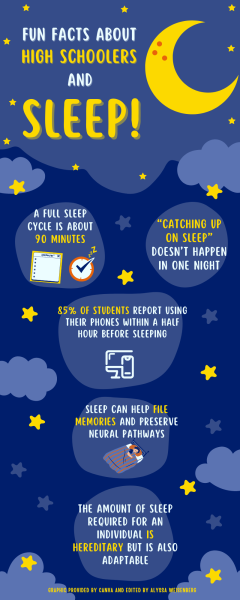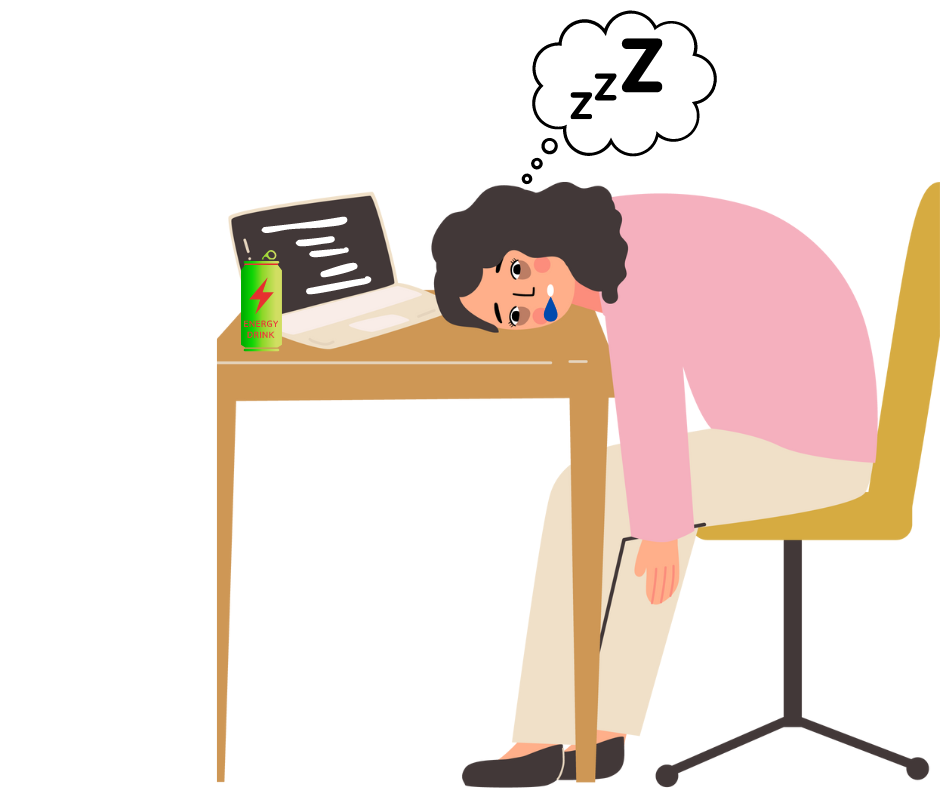What do most people not get enough of and desperately want more of? What do students constantly think about? At Parkway Central the answer is sleep. Both students and teachers suffer from a general lack of sleep. However, for students especially, there is a lack of specifically the appropriate amount of sleep.
In a Corral poll, students reported to sleep an average of 7.38 hours per night and the recommended amount is 8-10 hours. Brad Robertson, the AP Psychology teacher at Parkway Central, says he doesn’t see much of the lack of sleep in students. Despite this, he knows the effects of their exhaustion.
“It can lead to mislabels, small mistakes, mental errors, physical errors,” Robertson said. “We try to make up for our lack of sleep in other ways like consuming caffeine, things like that which are only minimally beneficial. It’s really like putting a BandAid on a cut.”
Many students are aware of how late they stay up. Despite staying up for school work, curricular activities or jobs and other responsibilities, teenagers have a natural tendency to stay up later. In extreme cases, this is called delayed phase circadian rhythm disorder.
 Dr. Robert Rudock, a somnologist (sleep doctor) at Washington University understands all aspects of delayed phase circadian rhythm and delayed phase circadian rhythm disorder.
Dr. Robert Rudock, a somnologist (sleep doctor) at Washington University understands all aspects of delayed phase circadian rhythm and delayed phase circadian rhythm disorder.
“If you have a significantly delayed circadian rhythm, and you go to school, and your first class is at 8 a.m., that is like me, sending somebody to class who doesn’t have a delayed rhythm at three in the morning,” Rudock said.
The delayed circadian rhythm is a result of the fact that our brain doesn’t regulate on an exact 24 hour schedule like we set our clocks to be. Instead, the brain regulates on a 24.2 hour cycle- thus delaying when we go to sleep, when we wake up and shifting the sleep hours entirely.
“So, there’s programming in your brain that says the day should be longer than it actually is,” Rudock said. “Because of this, everybody’s brain has a natural predisposition to say, ‘I want to sleep in later and go to bed later and keep on doing that.”
This effect might have been extended by modern technology. If the circadian rhythm doesn’t function normally, then less melatonin is secreted at night. This might be further enforced by the fact that most teens are on their screens for a long time before bed. 85.3% of the responding students use their phones within a half hour before bed for what Robertson calls “doom scrolling.”
“Part of it might be how busy a stud ent’s schedule is because then when you finish all of your ‘need to’s’ at the end of the night, we have the ‘want to’s’ as well, which includes laying in bed and doom scrolling through nothingness,” Robertson said.
Another thing that makes sleep difficult for many individuals is the weekend. The key to getting good sleep is consistency.
“The weekends are the thing that just kills everyone. It’s easy to be pretty consistent during the week because you’re waking up at the same time, Monday through Friday,” Rudock said. “So, when the weekend comes around, people tend to sleep in.”
The tendency to stay up significantly later and wake up significantly later ends up ruining the consistency of sleep. One of the large misconceptions about sleep is that one can catch up on sleep in one night. In actuality, consistency is what maintains good sleep.
“The brain loves, loves, loves consistency and wants to know what to expect,” Rudock said. So, if you [stay consistent] your brain tends to do much better,” Rudock said.





